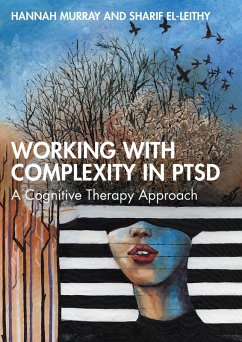
Therapeutic Failures in Psychotherapy (eBook, PDF)
Versandkostenfrei!
Sofort per Download lieferbar
41,95 €
inkl. MwSt.
Weitere Ausgaben:

PAYBACK Punkte
21 °P sammeln!
This book examines therapeutic failures in psychotherapy. Despite the consistent positive outcome findings and psychotherapists' best intentions in their efforts to help their clients, psychotherapy simply does not work in all cases. In fact, 5-10% of adult clients deteriorate during psychotherapy. Although not exclusively due to treatment failures per se, almost a fifth of clients terminate their therapy prematurely and findings suggest that that between 20 and 30% of clients do not return after the first session with half terminating after just two sessions. Therapeutic failures could includ...
This book examines therapeutic failures in psychotherapy. Despite the consistent positive outcome findings and psychotherapists' best intentions in their efforts to help their clients, psychotherapy simply does not work in all cases. In fact, 5-10% of adult clients deteriorate during psychotherapy. Although not exclusively due to treatment failures per se, almost a fifth of clients terminate their therapy prematurely and findings suggest that that between 20 and 30% of clients do not return after the first session with half terminating after just two sessions. Therapeutic failures could include a range of negative therapy outcomes, such as harm, deterioration, client non-response, premature termination, or dropout, as well as process factors, such as negative therapy experiences, impasses, or alliance ruptures. Investigating therapeutic failures holds the key to improving the effectiveness of psychotherapy as well as understanding some of the fundamental conditions that need to be in place for the change mechanisms of psychotherapy to take effect. Although psychotherapy has made many strides over the last few decades to improve research rigour and to promote evidence-based practices, it is a profession that is still growing. By embracing the opportunity to learn from therapeutic failures the profession will continue to refine its practices to better serve clients and to strive toward developing ethical and effective practices.
Both comprehensive and accessible, this book will be of great interest to psychotherapists in practice, therapists-in-training, as well as students and professionals in psychology and mental health in general. The chapters in this book were originally published in Counselling Psychology Quarterly.
Both comprehensive and accessible, this book will be of great interest to psychotherapists in practice, therapists-in-training, as well as students and professionals in psychology and mental health in general. The chapters in this book were originally published in Counselling Psychology Quarterly.
Dieser Download kann aus rechtlichen Gründen nur mit Rechnungsadresse in A, B, BG, CY, CZ, D, DK, EW, E, FIN, F, GR, HR, H, IRL, I, LT, L, LR, M, NL, PL, P, R, S, SLO, SK ausgeliefert werden.













